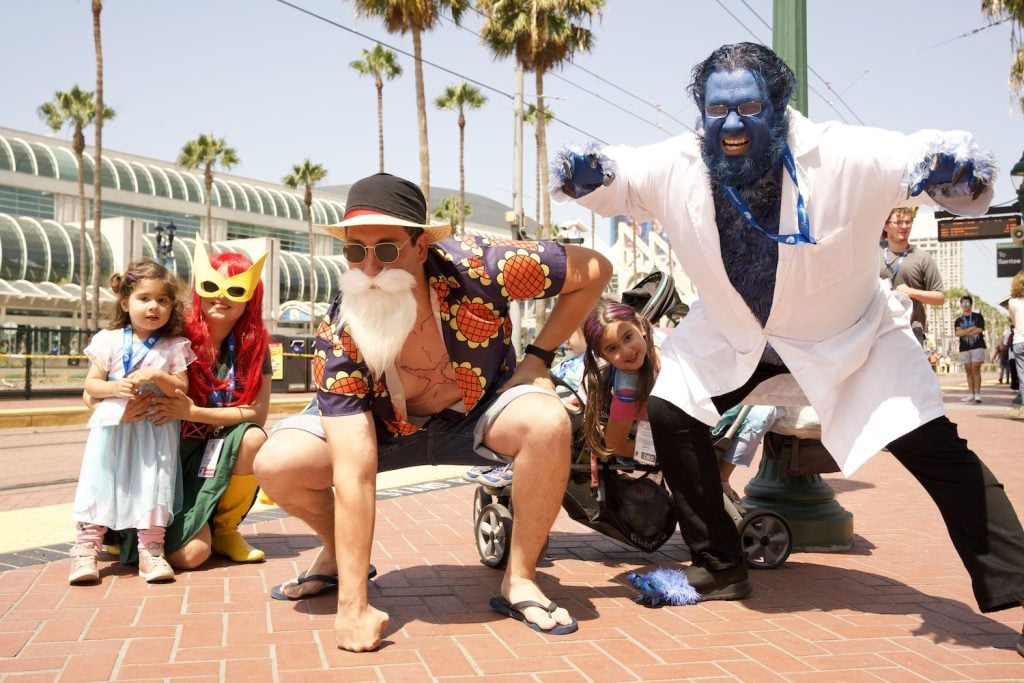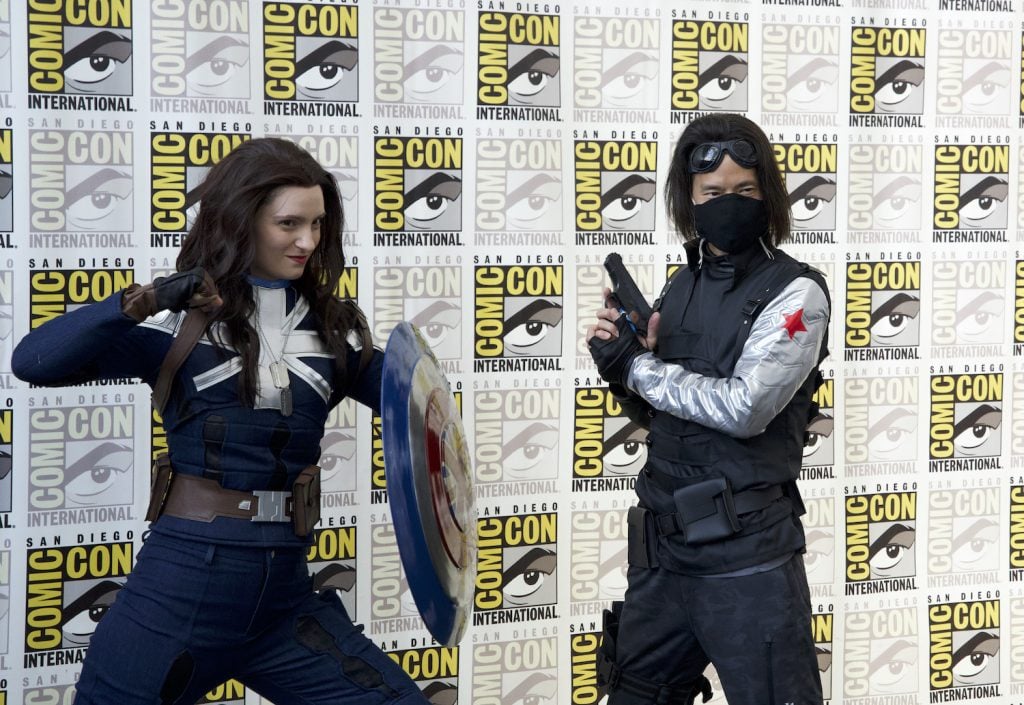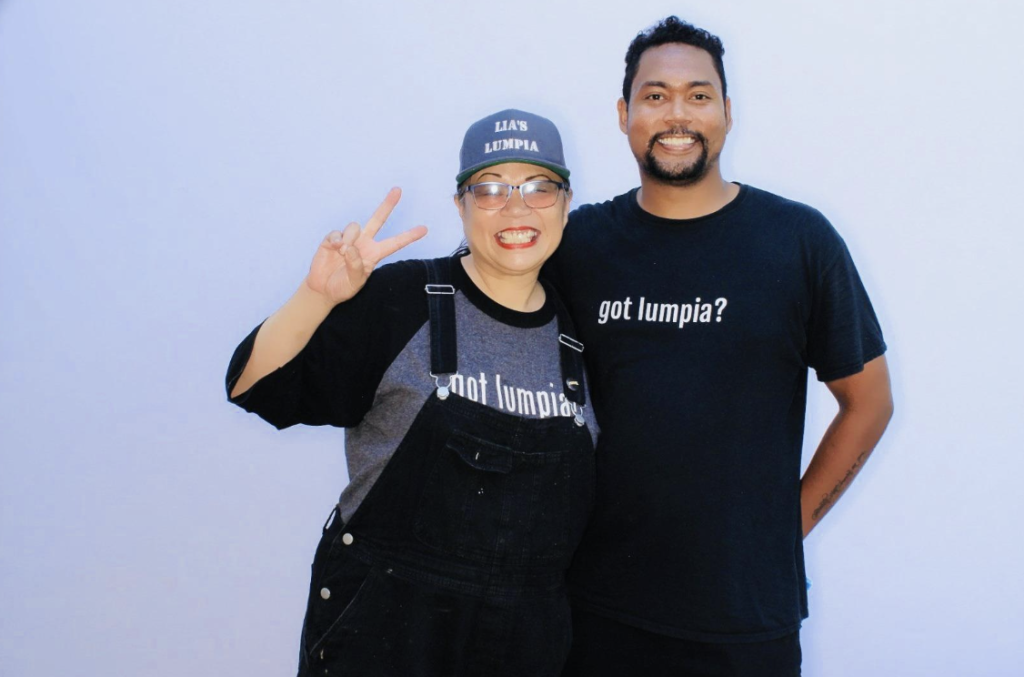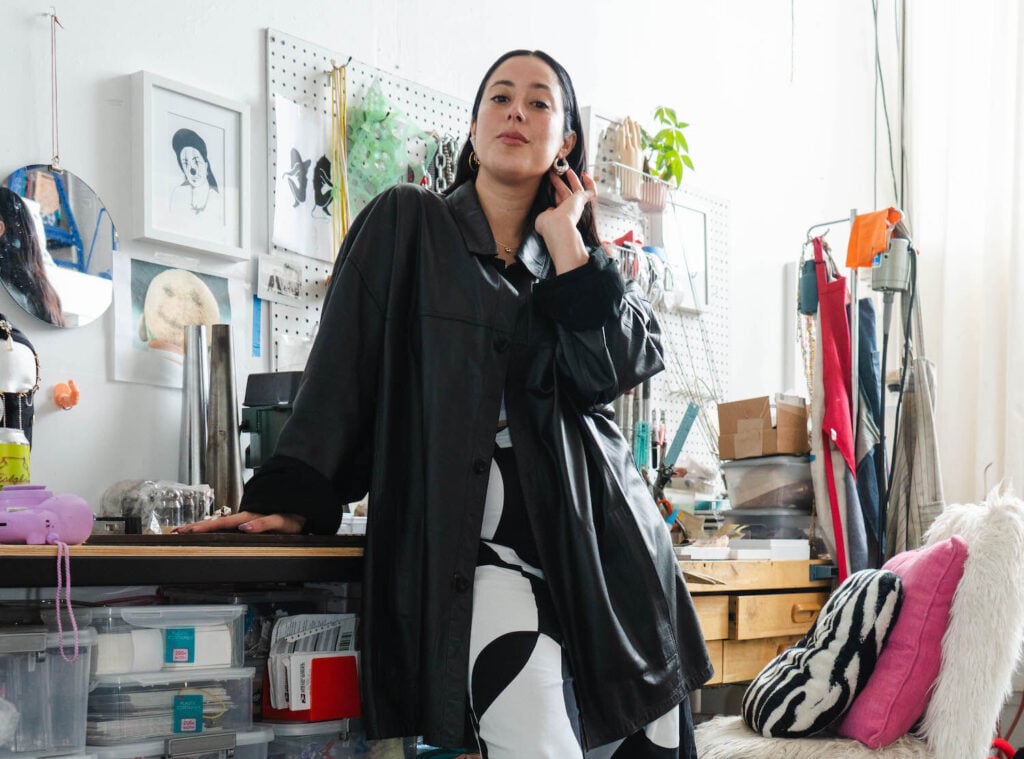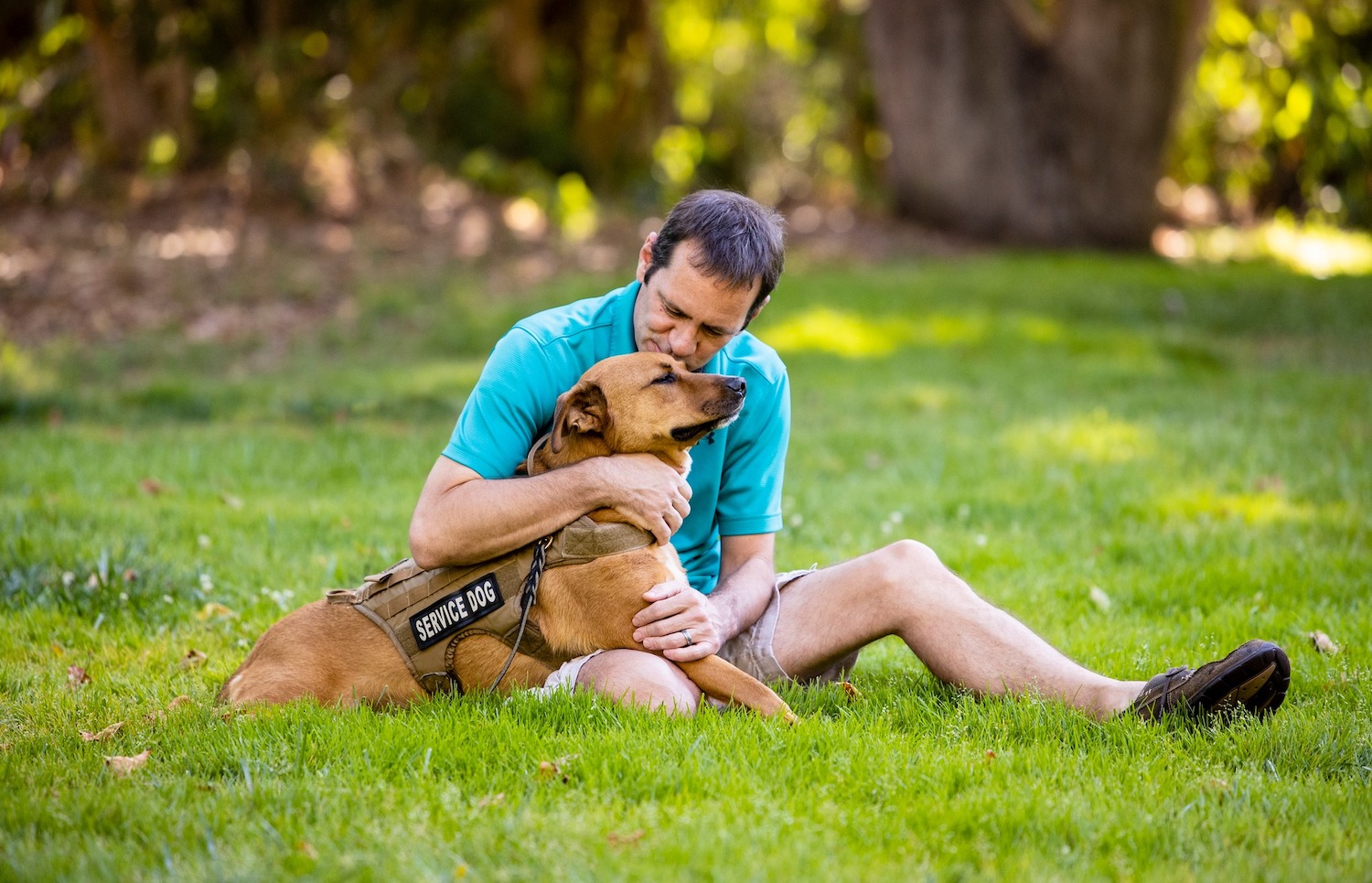Shelter to Soldier aims to save two lives at the same time. Founders Graham and Kyrié Bloem turn shelter dogs into psychiatric service animals for veterans with post-traumatic stress, traumatic brain injury, or military sexual trauma. But they can’t do it alone. Shelter to Soldier has a team of trainers, which includes longtime volunteers Lisa Johnson and Lynne Ramsey, best friends who put themselves through Animal Behavior College. Both have volunteered for the organization since its launch in 2012.
What made you want to become a volunteer trainer for Shelter to Soldier?
LR: Lisa and I had been volunteering at Rancho Coastal Humane Society and Graham became the trainer there. I met him and said, “Whoa, this guy is the real deal.” When he announced that he was going to have this nonprofit that rescues dogs and helps veterans, we were, like, that is a no brainer.
LJ: We were the first two people that worked with him and Kyrié when they started the organization. The most important reason we chose to get certified on our own dime was because we wanted to bring credibility to Shelter to Soldier when it was just a party of four or five people. We wanted credentials behind the volunteers.
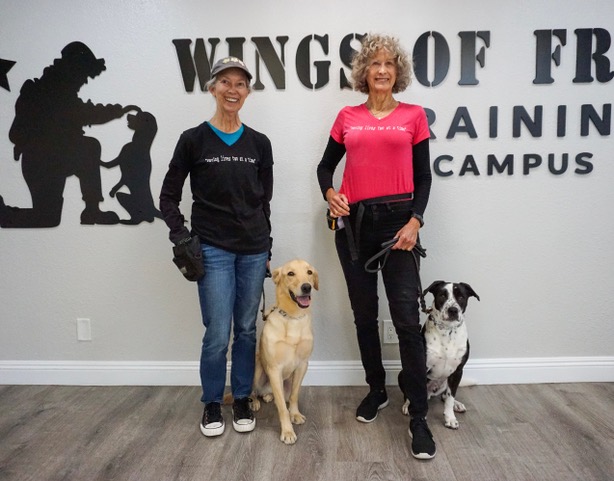
What do your volunteer duties entail?
LJ: Before it got big and had a whole staff of volunteers, we did everything. But now, as volunteer trainers, we provide the staff trainers with support. We visit the dogs, and they get to observe how the dogs behave with others. Because, in in the real world, service dogs might be handed off to someone else. For example, on a plane, if the owner falls, the dog might have to be held by a flight attendant or someone else.
LR: Service dog training is a much higher level than just a pet. We got certified as dog trainers so that we would be able to understand the theories behind the learning and to actually repeat correctly what the paid trainers are doing.
Can you describe your favorite or most memorable experience while volunteering?
LR: The thing that just is so magical for me is when you’re working with a dog—you start off with this brand-new dog that you know knows nothing and all of a sudden, there’s a connection and the dog performs what you ask and now you’re communicating, and you have this relationship. It’s incredible, and that’s what I thrive on.
LJ: We get to watch these dogs progress from pups who were never ever asked to do anything—they didn’t know how to sit or walk on a leash—then we watched them progress to being completely certified and placed with their veteran.
What’s the biggest challenge you’ve faced?
LJ: Once they graduate. If we run into them at an event, I struggle to keep my hands in my pockets because these dogs know us, and we’re not allowed to pet them when they’re working. It’s really hard, particularly at the gala when multiple dogs are there, to keep my hands in my pocket and not gush over these little babies.
LR: I echo what she just said. It’s hard because we develop this relationship and then all of a sudden, we have to cut it off. But there’s always another one.
Any advice for someone considering volunteering as a way to give back?
LR: Identify something that really touches you, then figure out what your strengths are and use those to help that because it’s a win-win. In addition to that, Lisa and I buddying up and doing it as a team was just phenomenal. Doing it with the buddy is pretty fun.
LJ: Just do it. You won’t regret it. It’s been the most rewarding thing, no matter what kind of volunteering you do, as long as it’s meaningful and touches your heart. The joy is endless when you’re doing it for the right reasons.




